Atlas VPN
Atlas VPN is a capable VPN provider which offers a decent all-round service for some of the lowest prices around.
There's support for the speedy WireGuard protocol, for instance. You get apps for Windows, Mac, iOS and Android, a kill switch to protect you if the VPN drops, and the service allows unlimited simultaneous connections.
A SafeSwap feature changes your IP address regularly while you're connected to the same server, maximizing your anonymity.
Bonus features include ad and malware blocking, while data breach monitoring alerts you if any of your personal details are found on the dark web.
- Want to try Atlas VPN? Check out the website here
Atlas VPN's network is smaller than many, with 700 servers spread across 27 countries. It'll be enough for many users, though, and P2P is supported everywhere.
The really interesting news here came in October 2021, when Nord Security (the company behind NordVPN) announced it had acquired Atlas VPN. That tells you, all on its own, that Atlas isn't just another identikit VPN provider: there's some substance here, something worth buying. And although Atlas VPN will continue as an independent provider, it'll surely benefit in future from Nord Security's resources and experience.
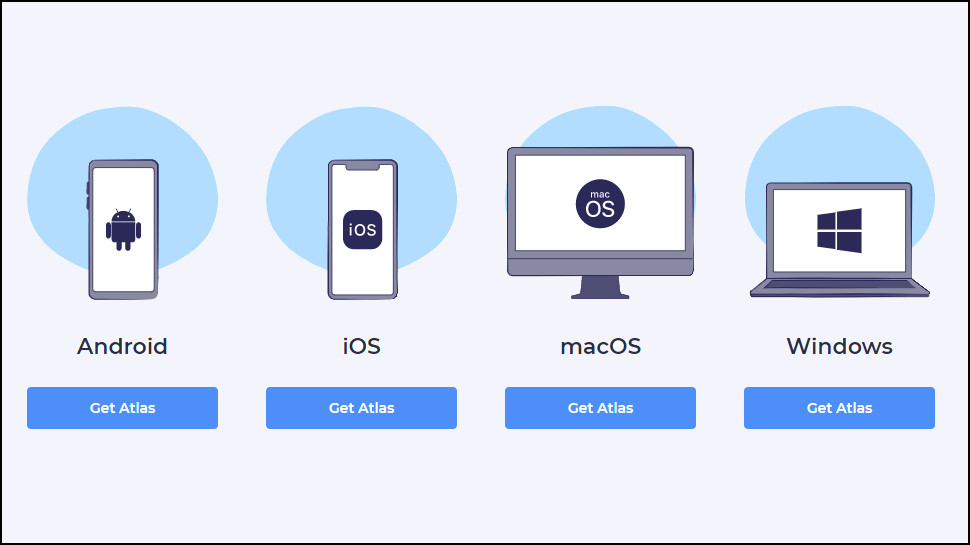
Atlas VPN pricing
Atlas VPN's free no-registration-required plan gives you an easy way to try out the service, though with a couple of significant limits: 400MB per day for data, and three locations only (Amsterdam, New York, Los Angeles).
That's not bad, and outperforms the free competition in some areas. Avira's Phantom VPN limits you to 500MB a month, for instance. Avast One's VPN has a generous 5GB a week data allowance, but doesn't support changing locations. ProtonVPN's free offering still wins out for its unlimited data and 12 locations.
Opting for a paid plan drops the data and location limits. Prices start at an average $9.99 for monthly billing, and you can pay by card, PayPal and Google Pay. Upgrade to an annual account and the price plummets to just $2.49 a month, while the three-year plan is an amazing $1.39 a month (okay, only for the first term, and it's $3.99 on renewal, but that still looks like a good deal to us).
Too good to be true? We'll check that later, but if you sign up and are unhappy, you're protected by a 30-day money-back guarantee.
Beware, though: plans automatically renew when you sign up, and there's no way to change this or cancel your account from the control panel. You must email support and ask for help.
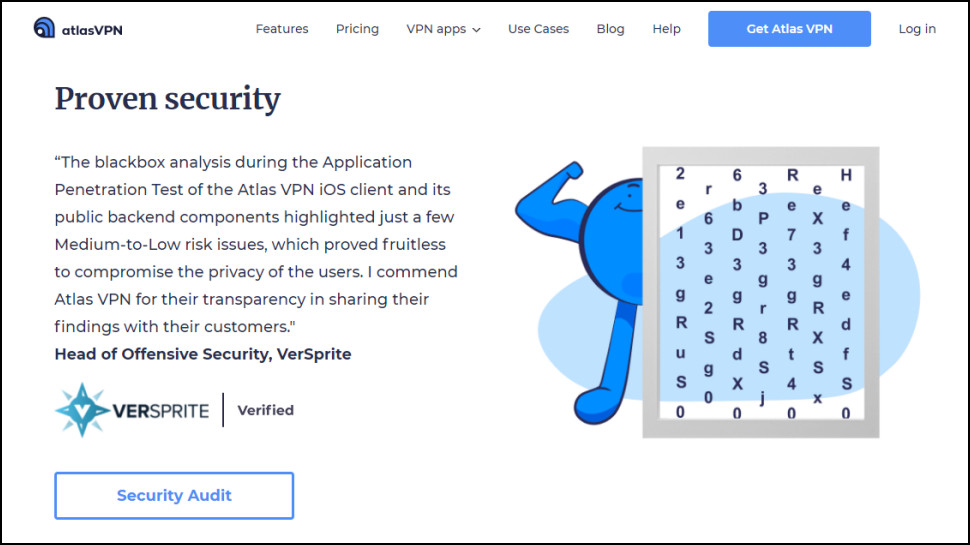
Privacy
Atlas VPN has the privacy basics covered with its WireGuard support, AES-256 encryption, kill switch and private DNS system.
Unusual extras like rotating IP addresses along with ad and tracker-blocking should bring extra privacy protection.
Atlas VPN's own policies aren't as impressive. Access its website for the first time and its cookie disclaimer only has an 'Accept' option, for instance. If you give the company your email address, you're opted in to receive marketing emails unless you specifically say otherwise. And the Blacklight Privacy Inspector found the site used Google Analytics, Facebook and assorted other tracking technologies.
(Don't take our or Blacklight's word for it – even Atlas VPN's anti-tracker technology decided it was best to block three trackers on its own website.)
Atlas VPN has been through what it calls an independent security audit, but this is just about as limited as we've seen.
The exercise only covered the iOS app, for instance. It was a black box review, which means the auditors tested the functionality of the app, but didn't see the source code. And although Atlas VPN quoted some of the results in a blog post, it hasn't published the full report, so there's no way to judge it for ourselves.
Okay, this is better than nothing, but only just, and it can't match the best of the competition. TunnelBear has annual audits of its apps, servers and backend infrastructure, for instance, and publishes the results for everyone to see.
Logging
Atlas VPN claims to have a 'solid no-logs policy', saying 'we do not collect details on our users' activities, DNS queries, or other data that could be linked to our users.'
The privacy policy says Atlas VPN's apps collect some device data, though. This includes: 'device type, model, brand name (e.g. Samsung, Apple), OS version, device ID, language, time zone, coarse location (city scale).'
It also mentions using 'attribution analytics to track install source and traffic source', and 'advertising IDs to measure performance of our campaigns.'
Put it all together and there's nothing to indicate Atlas VPN logs any of your online activities. It does have enough data to build user profiles, though, including details on user devices, when they connect and the amount of data they use. And as Atlas VPN hasn't had its no logging claims audited, there's no independent evidence to tell us if it's living up to its promises.
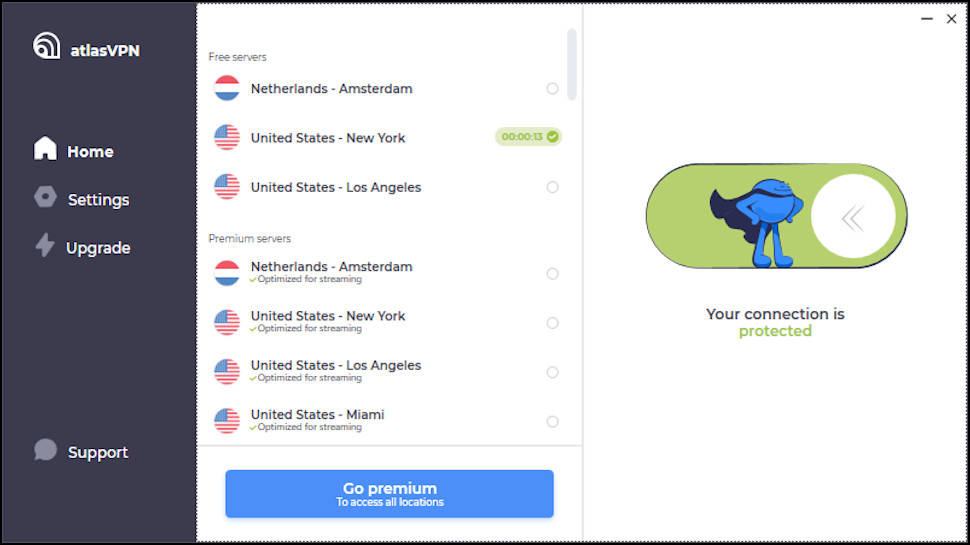
Apps
The Windows app is basic, and covers only the VPN fundamentals: a location list of cities, a Connect/Disconnect button, and a handful of settings. (The latter consists of a 'Start on launch' option, an On/Off toggle for the kill switch, and a choice of WireGuard or IKEv2 protocols.)
The developer hasn't paid much attention to usability. The location list covers cities, for instance, but they're not grouped by country or sorted in any order we could recognize. ('Germany, Serbia, USA - New Jersey, Hong Kong, Poland, Japan' is a part of the sequence – can you see any pattern?)
There's no Favorites system or Recently Used list, either, so changing location is always going to require some scrolling.
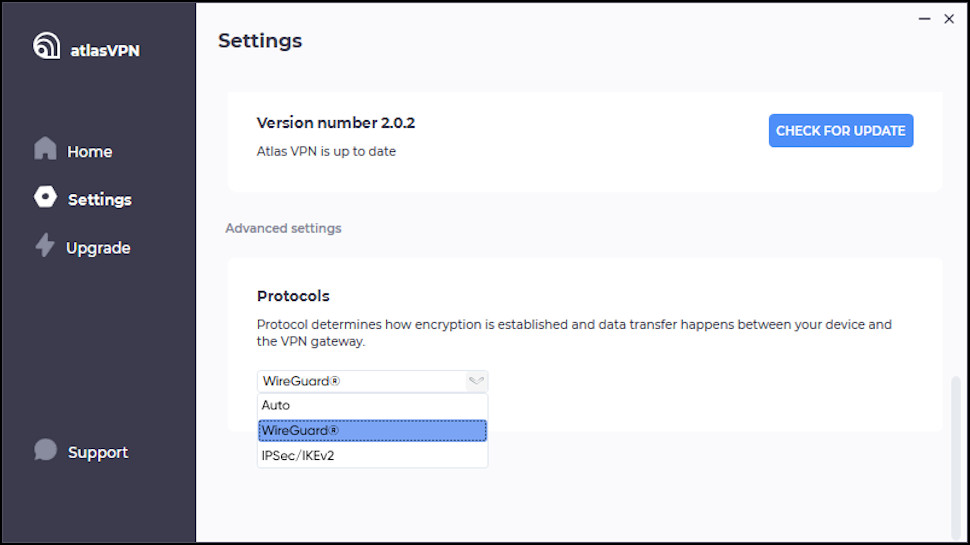
Our connection attempts failed sometimes with the free Atlas servers, perhaps a sign that they're overloaded. But this wasn't an issue once we upgraded, and connection times were decent at an average 5-6 seconds.
Atlas claims its app has malware and ad blocking. There's no sign of this in the app itself, though, and it made no visible difference to us. We saw far better results by installing the free uBlock Origin.
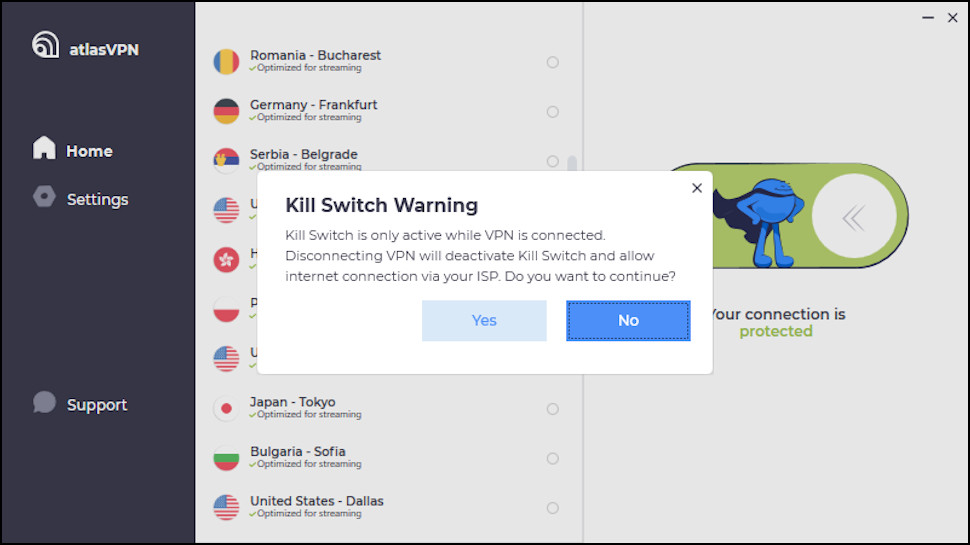
Kill switch
Our kill switch tests began with us simulating a dropped VPN. The good news is the kill switch immediately blocked our internet, ensuring we couldn't use the unprotected connection. The bad news – well, where to begin?
The app didn't raise an alert when the VPN failed, for instance. It didn't try to reconnect, either. In a real-world situation you might easily waste time checking networks, rebooting your device, or even the router, before you figured out why your internet was down.
Usually we could restore normal operations by hitting the Connect button. Sometimes this failed, though, with the app recommending we turned off the kill switch. What, it even blocked its own internet access? Really?
We reluctantly agreed to turn the kill switch off, and the app then connected. But when we checked Settings, the kill switch was still marked as on – it hadn't been disabled, after all.
Confused? Us too. Overall, the kill switch protected us from dropped connections, and that's what matters most. But the app could do a lot more to keep users informed, and get the VPN up and running again at the maximum possible speed.
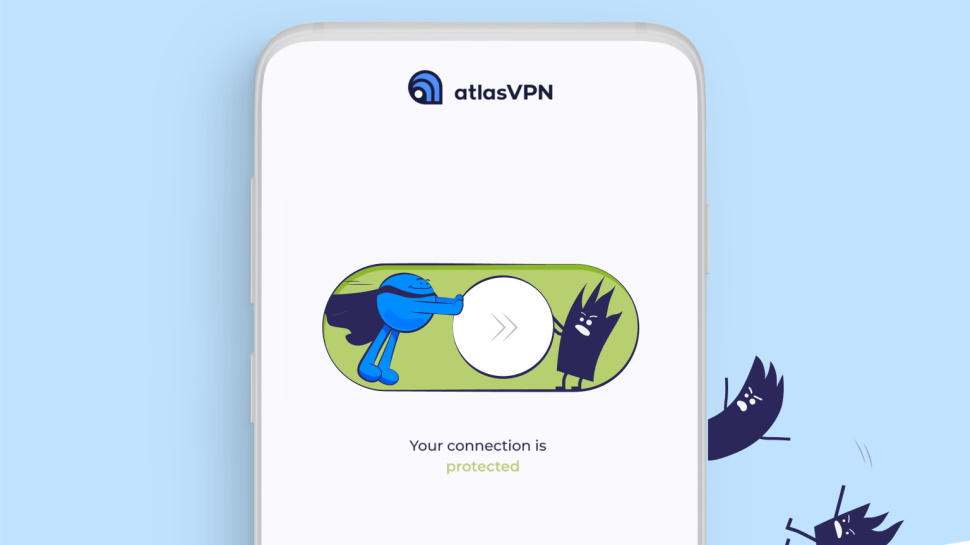
Mobile apps
Desktop VPN apps normally beat their mobile VPN cousins for features, but not here. Atlas VPN's Android app outperforms its Windows offering in several areas.
The location list works as expected, for instance, with countries grouped by continent and sorted alphabetically.
There's a separate list of Streaming Servers, apparently optimized to reduce buffering, something not included on the desktop build.
Settings are essentially the same as Windows, including a kill switch and support for WireGuard and IKEv2 protocols.
An Assistant page hosts a tracker blocking feature and the Data Breach Monitor, more options that we couldn't find on Windows. We ran a quick check of these, and found they offered some value. Turning on tracker blocking protected us from some trackers, and entering an email into the Data Breach Monitor listed some of the breaches where our credentials were exposed.
Atlas VPN's iOS app also improves on the Windows client with its sensibly sorted location list, tracker blocking and Data Breach Monitor options. It's a little short on features, though, with no WireGuard support or kill switch.
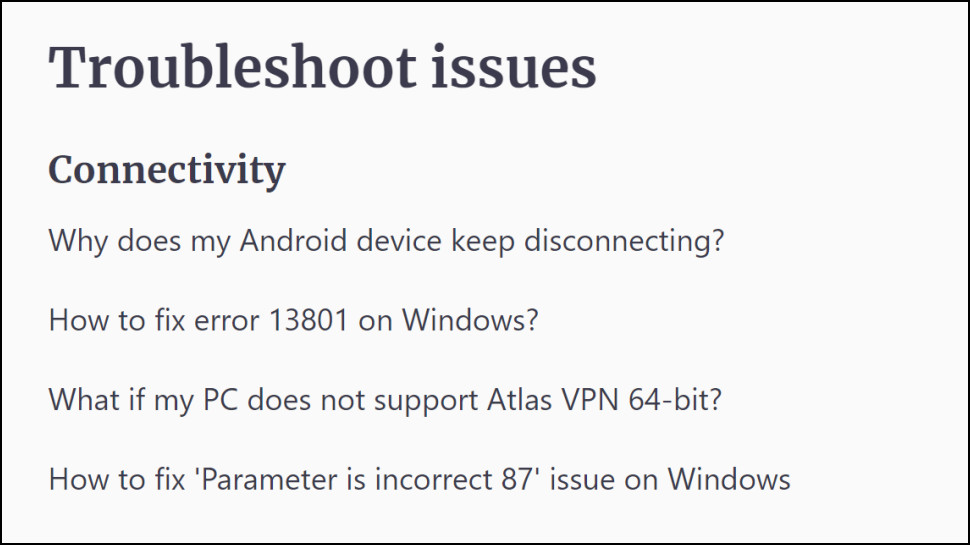
Support
Atlas VPN's support website is a little limited, and that's putting it politely. There are very few articles, most don't cover the topics you need, and many of what's left only have a few lines of content.
The Troubleshooting section is a great example. We hoped to see some sound general advice on installation problems, issues with app features or download speeds. Instead, we found only four articles on very specific issues, such as 'How to fix error 13801 on Windows?' and 'What if my PC does not support Atlas VPN 64-bit?'
(And if you're expecting any depth with the help provided, prepare for disappointment. This is the entire and unedited answer to that last question: 'No need to worry if your Windows device does not support Atlas VPN 64-bit: you can download the 32-bit version here.')
Atlas VPN has no live chat support, but you can contact the company via email. We sent a message with a couple of simple product questions. Does the Windows app have tracker blocking? And which, if any of the apps block malicious websites or ads, as none of them mention it anywhere?
A reply arrived just over two hours later, not bad for a response time.
The message read: 'The mentioned features are currently being tested, therefore they are not available on all platforms. They should be rolled out to other OS'es soon, however, we are unable to provide an exact ETA as it may be misleading.'
As Atlas VPN couldn't tell us which apps support malicious website or ad blocking, we'll assume the feature isn't available yet. That might have changed by the time you read this, but if it's a priority for you, ask the company before you sign up.
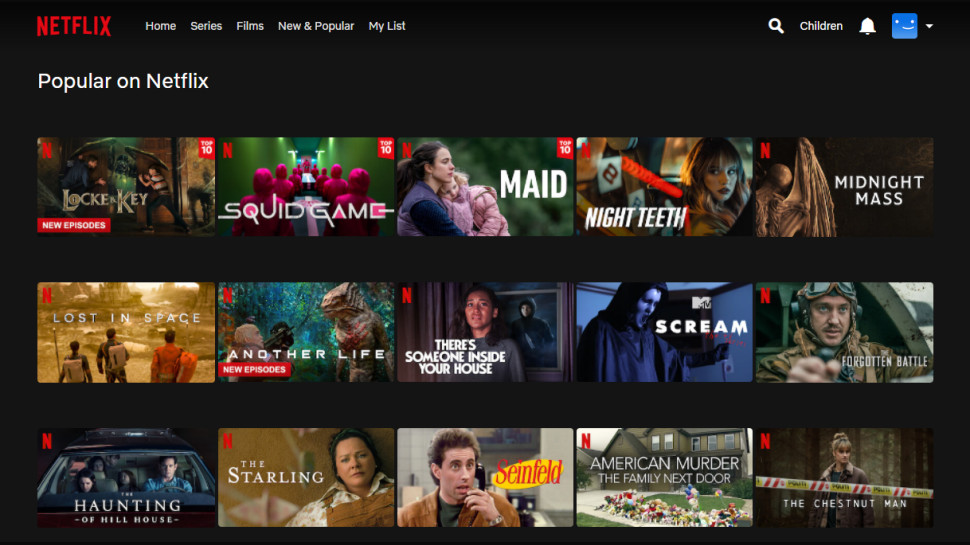
Netflix and streaming
Atlas VPN hadn't always impressed us so far, but it got off to a great unblocking start by getting us into BBC iPlayer.
Accessing US Amazon was more difficult than usual, as it asked us to complete a CAPTCHA first. IP reputation service IPQualityScore revealed that our Atlas server IP address had a fraud rating of 100, with recent abuse reported. That's not anything directly to do with Atlas VPN, but it suggests the free plan and low prices might make the company especially appealing to hackers. That makes for more blacklisted IPs, and could mean more CAPTCHAS and other security hassles for you.
Once we'd accessed US Amazon Prime, though, Atlas allowed us to stream content right away. We moved on to Disney Plus and were able to access that site, too.
US Netflix is the jewel in the unblocking crown, though, and it was out of Atlas VPN's reach. We weren't able to view content from any of Atlas VPN's US servers.
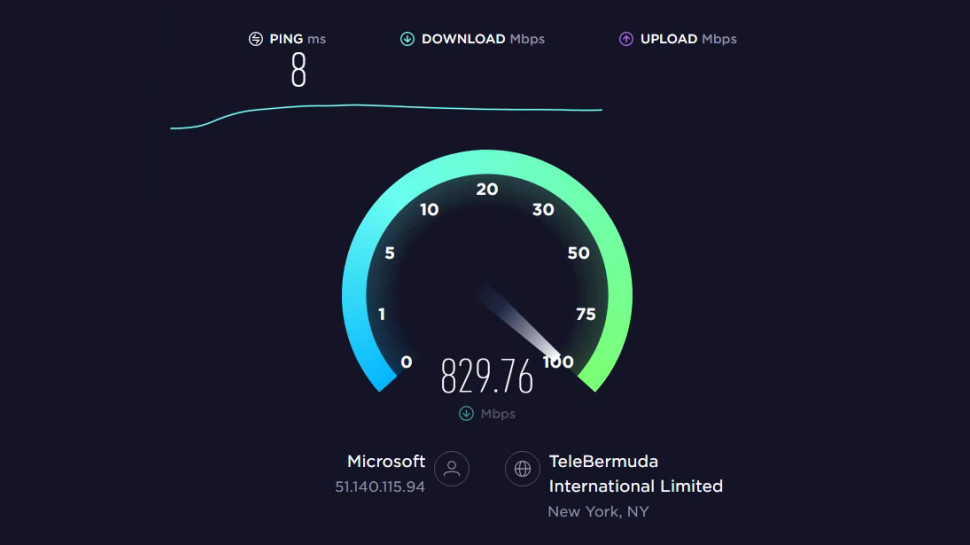
Performance
We measure VPN performance by running several benchmarking services – SpeedTest's website and command line app, SpeedOf.me, nPerf – from both a UK data center and a US residential location. We run each benchmark five times using WireGuard and OpenVPN (where available), run them a second time several hours later (that's a minimum of 120 tests), then analyze the data to see what's going on.
Atlas VPN doesn't support OpenVPN, but its IKEv2 speeds were reasonable at a mid-range 260-320Mpps in the US, 170-210Mbps in the UK.
Switching to WireGuard made a big difference, though, with speeds jumping to 590-600Mbps in the UK, and 650-800Mbps in the US. That's not quite a performance leader – NordVPN peaked at 880Mbps, IPVanish at 900Mbps – but it beat names like Windscribe (430-480Mbps), StrongVPN (450Mbps) and Surfshark (450-475Mbps).
Atlas VPN review: Final verdict
Atlas VPN may not have the best network, or apps, or support site – for those, you'd have to go for a more established provider like ExpressVPN. But now it's owned by Nord Security, we'd expect to see some improvements. And even right now, Atlas VPN's speeds are good, it unblocks more sites than many, and the three-year plan is as cheap as you'll see anywhere.
- We've also highlighted the best VPN
0 comments:
Post a Comment